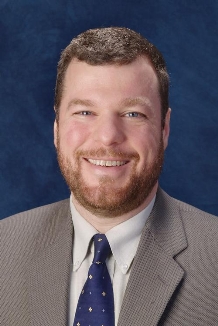It’s Just the Beginning
After a serious injury, your last priority is dealing with insurance claims issues, but that will not stop the calls and letters. Some insurance adjusters will call the day of your injury. Attorneys hire firms to sweep up police reports and send “attorney advertisement” mailings. Your car may be in a wrecking yard with accumulating storage fees. Your insurance will send out its forms.
Here is a roster of who you should expect to hear from, and who you should be talking in those first days after your injury.
Your Insurance Company
We help people in Oregon and Washington with injury claims. Generally, this applies to claims in both states, but there are differences. Here is one.
In Oregon:
If you are injured in a car insured in Oregon, you have Personal Injury Protection (also called "PIP") benefits, which provides coverage for medical expenses and lost wages. You will be assigned a PIP adjuster and will be provided forms and medical releases to complete. Your insurance policy is a contract, and you have certain responsibilities, so you must fill out these forms, and complete the medical and wage authorizations so your company can process your benefits (pay the bills). Must you give a statement?
Probably yes. This is because you have an agreement with your insurance company to cooperate. Your insurance company will want to know how the collision occurred so it can be reimbursed for benefits it provided to you.
This is for the no fault personal injury protection claim. You may also have an underinsured motorist claim, which is handled by your insurer, but by a different adjuster.
In Washington:
You will hear from your insurance company, but only if your policy includes personal injury protection. That is because personal injury protection in Washington is an optional coverage. Insurance carriers must offer the coverage, but if you decline it, then you do not have the coverage.
Other People from Your Insurance Company
If you have “collision” coverage for car, you may hear from another adjuster, also from your company, that will handle the claim for the repair or replacement of your car. This adjuster may even hire another person, an appraiser, to look at your car. Like with your PIP adjuster, your insurance policy will require that you cooperate with the adjuster to handle the claim, but again, if there is a dispute you may have options.
The "Other Guys" Insurance Company
We call these folks "liability adjusters." These adjusters will call themselves a "claim representative" or a "bodily injury" adjuster. These adjusters are on the other side of the legal fence from you. They are working for their insured (the other driver), and their insurance company. Do not think you must give statements, sign releases, or even talk to these adjusters. Often, the first adjuster you deal with has little experience, and will work directly under another adjuster before making any claims decisions. This adjuster may also deal with issues about your car (see below), and to get these issues squared away, you probably have to work with the adjuster.
Know of a quick offer of settlement. Many adjusters try to get an injured person to sign an agreement and resolve the case quickly, even promising to cover future medical expenses. This can and should happen sometimes, especially if there is no injury, and the only issue is fixing or replacing the car. However, we have seen sad stories where people unaware of a serious injury settle quickly, finding themselves with a serious injury and no way to get the medical care they need.
Be careful about giving recorded statements. Many adjusters are trained to twist your words or get you to make statements that can later be used against you. We seldom see a case where a client helps themselves by giving a taped statement to the other party's insurance company. However, we do not often see a client’s statement hurting their case, but the risk is there.
Signing a medical release for a liability adjuster is not required. These releases often allow the insurance company to poke around at your prior medical records and issues having no bearing on your claim.
You may also deal with a property damage adjuster from the at fault driver’s insurance company. Although you technically need not speak with this adjuster, unless you have comprehensive coverage, you must work with this adjuster to get your car fixed, repaired, and secure a rental car in the process.
Lawyer Letters
You will receive letters from lawyers offering to take on your case. Like any decision to hire a professional, do your research. Go online and check out AVVO, an attorney rating website. Research the attorney’s website, and if you go for a "free consultation," ask about fees and costs. Ask the attorney about their experience. You are the client.
Questions
Still have questions? Contact us to discuss your issues. Not all claims require a lawyer, but at least you will know where you stand.


